I started out by digging into the commitments recently made by the Evangelical Fellowship of Canada (EFC) in relation to Indigenous peoples, commitments that include renouncing “white supremacy” and “unsettling” evangelical theology. I finished off by having candid conversations with three friends from three different First Nations about how churches can make things better.
The commitments made earlier this summer by the EFC—of which Mennonite Church Canada is a member—are rooted in the “Reconciliation Proclamation” that came out of a 1995 sacred assembly in Quebec. That event brought together key church and Indigenous leaders for four days. The resulting one-page Proclamation, which is at once hard hitting and brimming with grace, says the starting point for healing and reconciliation is “personal communion with the Creator God.”
Standing on the groundwork of 1995, the current EFC commitments essentially involve four components:
- Education and awareness raising (with reference to the ’95 Proclamation, the Truth and Reconciliation Calls to Action, and the UN Declaration of the Rights of Indigenous Peoples);
- Theological work, including around the notions of “white supremacy” and that “Jesus is found amongst the most vulnerable and persecuted”;
- Networking; and
- Establishing an “accountability mechanism” to measure progress.
Emphasis on the '95 Proclamation is a strength and weakness. The Proclamation, which Bruce Clemenger, the current EFC president, helped draft, is deep and incisive. It makes me wish I had been at what was clearly a remarkable gathering. But recommitting to it now—more as a new step than a continuation of ongoing work—highlights how quickly the church commitments of 1995 faded.
Caution
EFC leaders were somewhat hesitant to do an on-record interview with me. They needed time to vet answers with their Indigenous-Settler Relations Working Group and next steps will be clearer after a fall meeting of that group. Fair enough.
As per an interview conducted by Katie Doke Sawatzky of MC Canada, the EFC does not yet have an action plan to accompany the commitments. Given that the EFC itself is an umbrella organization of 45 denominational groups, 83 ministry organizations and 34 schools, it needs to proceed with care.
Candour
That caution, understandable as it is, stood in contrast to the candour and immediacy of the Indigenous friends I spoke with. These are community leaders I have known for years. I asked what they think churches and non-Indigenous people in general can do to make things better.
Les Dysart, a member of O-Pipon-Na-Piwin Cree Nation (OPCN) in northern Manitoba, is focused on the massive hydropower diversion that has turned their homeland on its head, pulling the rug out from underneath a highly lucrative fishery and an exceptionally self-reliant community.
Dysart is a commercial fisherman and the designated lead for OPCN on hydropower issues. He has been to the UN in New York on behalf of his community and is involved in a major seven-year research partnership based at the University of Manitoba.
OPCN’s direct request for changes to operation of the river diversion last year was simply ignored by the provincial government, part of a long pattern. For Dysart, political will is a matter of life and death: the life of the once highly successful fishery, and the life of the lake and river at the heart of the community.
Blunt reality
Dysart’s answer to my question is simple: Churches and citizens “gotta become the unsilent majority.” They need to do the work of creating political will. They need to get educated and raise their voices for change.
He lives in a blunt reality: “We need a collective voice out there that’s not only brown.”
He refers to 1999, when an interchurch group convened a public inquiry at which senior government and Manitoba Hydro officials testified and were questioned.
For many years, Dysart resisted using the word “racism,” feeling it was over used. “I don't like using it,” he says, “but that’s what it is.” Governments would not allow the lakes of white cottagers to be destroyed in the same way, he says, adding that Manitoba Hydro’s system, as overseen by governments, is a “race-based operation” that delivers “predominantly race-based benefits.”
Both he and I know that I will never be able to comprehend and experience that on the level he does. If his analysis offends people, he says—in his ever-reasonable tone—“let’s sit down and chat.”
Christianity and control
A few hundreds kilometres down the river system, Robert Spence is equally unsettling in his comments. A commercial fisherman, hunter, trapper and dog-musher from Tataskweyak Cree Nation (TCN), Spence is now a band councillor, “straight from the bush to the boardroom,” as he puts it. TCN territory is home to numerous hydropower mega-projects, including the $8.7-billion Keeyask dam, currently under construction. The ongoing damage caused by these projects is a grief beyond words for Spence, a grief mingled with the harm done by churches.
Spence’s story is a soul-jarring reminder that, given the extent of abusive activity perpetrated by Christians—not limited to residential schools—and given the ways in which resource extraction activity and government complicity continue to cause immense damage to Indigenous lands, church reconciliation efforts will encounter choppy waters.
He talks about the imposition of church people “thinking they knew more than the people they thought they needed to save.” In his experience, a lot of people in the church look at Indigenous people as “heathens and savages.”
He also knows people who are homeless, addicted, or who took their lives because of sexual abuse by Ralph Rowe, an Anglican priest who flew around the north in the 1970s and ’80s, preying on as many as 500 youth, according to the law firm launching a class action suit against him. Rowe has already been convicted of 75 sex crimes.
Spence’s analysis goes beyond individual actions; he also sees the church institution as inseparable from an overall societal system of oppression that has sought to control and bulldoze his people.
In his daily experience of meetings and dealings with governments and Manitoba Hydro, he comes face-to-face—literally, viscerally—with racism that denies his people clean drinking water, a clean environment, control of their destiny and basic respect. “No matter how nice they are,” he tells me, “deep down you know what they are doing—trying to keep you from getting what is rightfully yours.”
In his view, the church, as an institution, plays along with that system. “They are used to create a norm,” he says.
Of course, he says, there are also good people in the church, but his account lays bare the sorts of raw realities that churches will have to face on the path to healing.
Perhaps that brings us back to the EFC commitments that say the true essence of faith, Jesus, “is found amongst the most vulnerable.” The closer we get to the unpolished reality, the closer we get to the truth that can set us all free.
Systemic injustice
David Scott is from the Swan Lake First Nation in southern Manitoba. He started working on policy issues for his community when he was 16, after standing up to an arrogant government official at a meeting in the community. He has worked on a range of policy matters at home and in other provinces, sometimes called in by the Assembly of First Nations to appear before standing committees of Parliament. He also serves as a sort of ambassador for his community, connecting with surrounding schools, churches, Hutterite colonies and civic officials.
Sitting in my backyard, he says to me, “The laws are written to protect you, not us.” I’d never thought of it like that. Like Dysart and Spence, Scott is not speaking in the abstract or only about the past.
“It's against us,” he says of the courts and laws. He's been involved in various legal actions to improve things for Indigenous people. He speaks of the almost desperate need of governments to exert control over Indigenous peoples. “Self-government,” for instance, ends up being freedom for First Nations to operate within clear parameters set by government.
Here Scott sees common cause; both on reserve and in society at large, people “have to take back the power,” he says, “to address how people are elected.”
No small order—to work at changing laws, the justice system, and the electoral process—to “talk to those who are in power.” Scott says it starts with trying hard to understand the legal reality, how we got to where we are.
He also admonishes us to “look internally within the church organization; what works against humanity?” We must all start by “looking at everyone as a human being.”
Reconciliation has become clichéd
Scott is the only one of the three I interviewed to use the word reconciliation, and he doesn't use it much. For a good many Indigenous people, the term “reconciliation” has a hollow ring, one to which their ears are well tuned. Yet more good intentions. As my friends have pointed out, more than once, the prerequisite for reconciliation is truth. There's no short cut.
Leap of faith
I struggle to link my friends’ heartfelt comments to the EFC commitments. There is little obvious overlap in tone or content. I can’t quite see the EFC inviting Robert Spence to speak at its next national event. But this is the reality. This is where I, a committed church person, ended up when I asked a simple question of Indigenous people I came to know initially through church involvement. I met them all through my previous work with the Manitoba Interchurch Council on Hydropower.
The EFC, considering where its members are at, has sought entry points—study, reading, theologizing. Essential groundwork. The people I spoke with started with immediate, urgent, grassroots practicalities. Maybe that is too big a leap for churches. Maybe not.
Maybe that's where faith comes in.
Does our faith not compel us, and indeed embolden us, to touch the pain of the world, to go to the messy margins—the places Jesus went—to uncover healing, humility, compassion, love?
Good news
We are people of good news; I hope the good news that we, as non-Indigenous Christians, can proclaim is that we care. We care enough to understand, to walk alongside, to humble ourselves, to respond with courage and creativity. The good news must be that we care enough to put aside our need to help, to solve, to save, to make a mark, before even listening. The good news must be that we recognize that our destinies are intertwined.
I believe that heaven and earth are overflowing with grace. I need that, because talking with people like Dysart, Spence and Scott is challenging and bruising, as well as fun and rewarding. Grace is not a backdoor for when we are too afraid to act; it is what provides the space in which to act.
The 1995 Proclamation—and the EFC has done a great service by putting it before us—says that the starting point is “personal communion with the Creator God.” For me, the call to connect with Indigenous people is less of a social justice impulse than a spiritual one. This is not so much the work of politically dialed-in activists, as it is the path of people seeking truth and love. This is less about moral compunction than a deep understanding that we discover something vital about faith, truth and church when we go humbly to the edges of society.
—Corrected Sept. 9, 2020

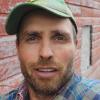
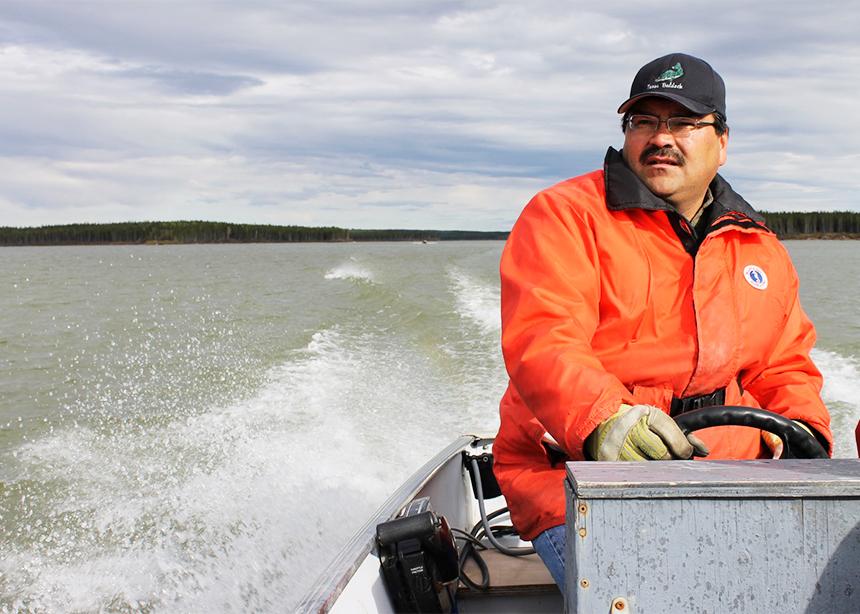

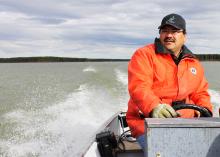
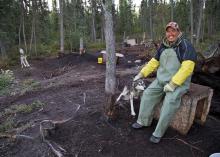
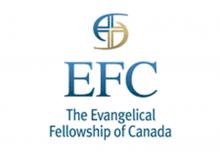
Comments
Many years ago, during a short season of visiting a friend from my youth, I was left to the care of his extended in-law family, in Cross Lake, MB.
In that day, they took me in, prepared a BLT sandwich for my lunch, and regaled me with stories of the prowess of the now elderly grandmother, patriarch of the familial clan. Wonderful hosts to the stranger dropped into their midst.
Several hours later, standing on the dock, at the edge of the lake-waters, waiting for the return of my friend, I met a man from the Cross Lake settlement.
We got to chatting, and eventually I asked, “What, in your perspective, has been the singularly outstanding challenge faced by your community, in the last several decades or century?”
“Well,” he said, “I would say that the divisiveness which the Christian church denominations have brought to bear.”
He explained it rather parabolically, suggesting that they used to be united in their view of Creator. Then Catholic, UCC, Anglican, Mennonite, Pentecostals and others, came to evangelize - each baptizing and teaching the people how the rituals, doctrines, praxis of the “other” groups was not quite adequate, not quite right enough, etc.
Over time, individual families became divided unto themselves, with grandparents, parents, then children, and eventually grandchildren ending up being baptized members of different congregational settings, unable, sometimes unwilling, to speak to one another with the mutual respect once foundational in the intercourse/discourse of the community.
This divisive construct, he said, was fundamental to the problems they face as a community, one which, a long time ago, was much more unified in its understanding of, and in their responses to, the impact of external forces, whether imposed by forces of nature, or other peoples arriving in the region.
This has served to weaken the very fabric of their identities, their sense of power and hope in a shared destiny.
In conclusion, he revealed, as the awaited Otter slid up toward the dock, that he himself, was an ordained aboriginal leader within the constraints of the UCC, very much in the thick of the conflicted religious and spiritual structures within the community.
I remembered, as he loaded his luggage, then hoisted himself into the cabin of the plane, how one leader of an aboriginal community, years earlier, had said something like, “When you wish to come and evangelize us, come to live with us, walk in our moccasins for two years or more, and learn from us. Then, when you have learned to understand our ways, maybe we’ll have reason to listen to what you have to say to us!”
Wise words, rarely heeded, it seems, in spirit or in praxis.
Sadly I/we seem inclined to persist in the praxis of the deplored: not so much “doers of the word”, as the (preferred/defaulted?) “hearers of the word, only”.
Who can save us, wretched as we are?
Vine Deloria Jr. (1933-2005), was a Lakota/Dakota Sioux spiritual leader /activist, philosopher, professor, writer, and theologian with a degree from Lutheran School of Theology at Chicago. Mr. Deloria has written a number of books on the white/Indigenous issues existing in North America. In his 1972 book entitled "God is Red: A Native View of Religion," Mr. Deloria decries the damage done to the environment of North America and its original inhabitants by Western Christianity since 1492 CE. Basically, Mr. Deloria makes the case that in order for North America and its inhabitants to thrive, the God for North America must be the God/Creator of its original inhabitants. Mr. Deloria deplores the import of a middle-Eastern Judeo/Christian God and the blanket extrapolation of Christian theology to the environment and people of North America. Mr. Deloria challenges the notion/assumption that humanity can take just any old God out of that God's initial environment and hope for good as the result.
Christianity, including Anabaptist/Mennonite Christianity, tends to smother other cultures/religions/peoples with our "superior," and ultimately racist belief systems, without much care as to the damage we do, as long as "souls" are saved. Perhaps it is time to, as Mr. Deloria implies, "pick up our foreign God," and reinstate Yahweh in His (sic) erstwhile/former geographical location if that is possible. If not, then perhaps we would be wise to begin to incorporate the values/understandings of Indigenous spirituality into our Christian theology in order to stop ourselves in our continuous pell mell rush to spread our "good news," without regard for the consequences to the humanity and environment of North America.
Thanks for now
Peter Reimer
Gretna, Manitoba
Add new comment
Canadian Mennonite invites comments and encourages constructive discussion about our content. Actual full names (first and last) are required. Comments are moderated and may be edited. They will not appear online until approved and will be posted during business hours. Some comments may be reproduced in print.